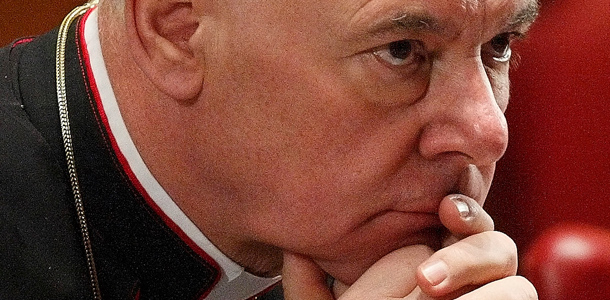SEARCH

It is perhaps easier to think of ecclesial communion in the abstract, as a concept to which I give my assent but one which has little concrete impact on my life. For those recently entering the Catholic Church, particularly when the lack of papal primacy and the Magisterium are experienced as an ecclesial deficit motivating the desire for full communion, it is natural to focus on unity at the macro level: communion with the Holy Father and the See of Peter. But the development of a culture of communion... implies also that equal attention be given to communion with the bishops of the Church, communion with the local diocese and parishes, communion with the Catholic faithful, and bonds of charity and friendship with those still separated from the Church. I am well aware that many of you have experienced conflict and division in the years leading up to your decision to seek full communion with the Catholic Church. Indeed, many of the clergy dossiers which we have read in Rome contain moving accounts of defending orthodox faith and practice in the midst of painful, even scandalous situations of fracture. We must be reflective about these experiences, discerning carefully that they do not overly influence our attitudes toward ecclesiastical authority or Church life. A culture of communion will not take hold if our default position is defensive or contentious. Unity is easily undermined by a culture of suspicion. Communion must be fostered and expressed also in the manner in which we relate to one another. While the explosion of so-called “new media” has revolutionized human communication and offers many opportunities for advancing the New Evangelization, blogs especially have a way of promoting un-reflected speech. Judgment and criticism are certainly not bad things in themselves, but when opinions are advanced on an internet forum unbridled from charity or an adequate knowledge of the facts, they can undermine the very foundation of ecclesial communion which is love.... Constructing a culture of communion will require wisdom, humility, and a firmness of intention to avoid divisiveness. In a world marked by division and discord, a culture of communion can be an especially eloquent witness to the truth of our faith and in fidelity to our Lord’s prayer “that they might be one.”Archbishop Gerhard Ludwig Müller Prefect of the Congregation for the Doctrine of the Faith St Mary's Seminary,Houston 2 February 2013